This article may be a little more intense than you’re used to from me. Hurricane Helene was forecast to hit the Atlanta area.
Instead, it barreled right through my life and our farm. We were extremely lucky that it wasn’t worse, but we had no internet for 21 days, no power or running water for two weeks, and lost multiple structures, fence lines, and so, so many trees.
Let’s talk about the first seven days.
Day One: September 27th
I went to bed very late that morning, around 12:30 am. At that point, we’d had 4 or 5 inches of rain over the past day. A lot, but not unheard of. The forecast was still telling us that Hurricane Helene was going to hit about 200 miles west of us.
We were supposed to get 15 mph winds, maybe another inch of rain, and a little gusting. I’d tied the rabbit hutch down and brought the livestock guardian dogs in and shrugged it off. I was probably being paranoid just having bought a few extra gallons of water and some “we don’t have power” kind of snacks.
I woke up a few hours later to the shriek of metal shearing off my livestock shelters and garden, and the screams of terrified livestock, followed by endless crashing sounds as tree after tree smashed to the ground. The dirt had become so incredibly saturated that there was no way those trees were holding on through 100+ mph winds.
Related: High-Risk Looter Places You Have To Stay Away From In A Crisis
We walked out to a world that looked like a nuke had gone off. Areas we had never seen through due to tree cover were now as bare and high vis as the road itself usually was.
The road was impassable, as was our driveway. My garden? Everything was in pieces except for a few fruit trees that managed to take a hit and laugh about it. The livestock were okay, if horribly frightened. The barn cat shelter was under dozens of trees: they were all okay, too, though we had to use a catch net to fish one terrified cat out.
The rabbits were crushed under trees, my trusty old hutches flat. The rabbits themselves? Safe and sound due to the bracing I’d built into the designs years and years ago when they got put up.
There was nothing to do: no power, no water, and almost no internet or phone signal from our phones. We were trapped. And we had all of two days of water and food with us; and no way to get more.
Day Two: September 28th
Some kind neighbors sawed a path through one of our pastures to come to check on us. After significant work, we managed to get the truck out of the hole they sawed. Transport was important.
I had to find water.
Maybe we had been hit the worst, I told myself. Maybe up in town wasn’t so bad.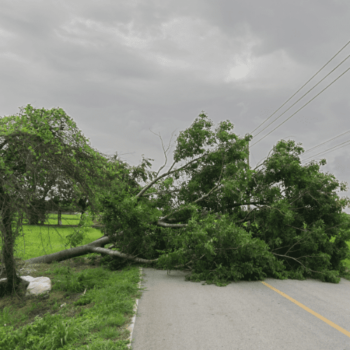
A tree bigger around than the truck blocked the road up into town. People were working on it; not the county, but local people who lived near it. They told me to come back in about an hour. I jumped out and helped them move wood for an hour instead because you don’t let your neighbors do all the work.
We managed to get up into town. Power poles were everywhere. Traffic lights had been blown to pieces. There was no power. In all of the Augusta, GA area, there was one Wal-Mart open and a single Waffle House. And there was no help in sight. None. Nothing.
I spent hundreds of dollars getting us set up for a long, bad time to come at that Wal-Mart. It still didn’t have a fraction of what we needed, but we got some water. We got some food. It was Something.
Day Three: September 29th
Five and a half hours in the gas line just trying to fill my truck up because there was no one flagging traffic as lines merged time and time again.
The police, FEMA (who never showed up in my county), and absolutely everyone that is supposed to respond in a disaster area was completely worthless. The only thing the cops were protecting were businesses: guns out and staring down people who were desperate to buy anything they could to maybe sustain themselves through this mess.
Country people like me don’t forget seeing that. I doubt any of us will.
Day Four: September 30th
Our electrical company told us we would have power restored within a week. What a joke that ended up being.
By day four, we heard that the kennel good ways up the road had a hose out by the road. I ran to the local Lowes and stocked up on two things: 5-gallon buckets with lids and more pallets of 16.9 oz water bottles.
Did you know that a 5-gallon bucket full of water weighs right around 50 pounds? After handing over a thousand pounds of water over the fence to my little brother, I did. So, so much.
Related: 8 Solar Powered Items You Should Have on Hand
Day Five: October 1st
We were once again assured that we would have power “very soon”. Again, what a joke.
Our driveway was still a mess and it was not going to get better any time soon. We used our car to charge our phones and have a little bit of a break from the 90-degree heat. Heads up: did you know most modern vehicles require a special funnel to put gas in your car? Make sure you have one just in case of an emergency like this!
This was also the day that I finally managed to find a small, charcoal grill for the family (and anyone else near us that needed to cook out). We ate hot food at home for the first time on this day. It was wonderful.
Day Six: October 2nd
Gas! Blessed gasoline at our most local gas station (about 15 minutes away). There was no line because no one knew it was there. I filled up everything I could with gas so I could refuel the car, the truck, and bring some extra to a couple of the neighbors who had generators. This was also the day that this gas station got power: and ice.
Related: Best Fuels For Off-Grid Survival
It was a three-hour wait for ice, but it was worth it. Most days after this, it was a 5 am wake-up just to run up to the gas station and purchase the 20 pounds of ice I desperately needed to keep my refrigerator cool enough that my insulin did not go bad in the 88-90+ F degree weather. Prior to ice being available, we used frozen meat from our deep freezers. That was gone by the end of day five. We got very, very lucky.
Day Seven: October 3rd
We knew, by this point, that we weren’t getting power or running water back any time soon. The library opened and I managed to get down there (there was a lot of off-road driving involved in that) to update people on our situation. It would be another six days before we had any trace of power, which flickered on and off for the next week after that.
It was a ride. A rough, tiresome ride. It was also the deciding factor in us moving north even sooner than we’d planned; we don’t have any desire to do this again. While we know blizzards may await us, we’d rather have to dig out of the snow than get slammed with a hurricane with no warning whatsoever. At the end of the day: no, thank you. We’ll take our chances in the cold, white stuff.
Have you been through a massive natural disaster? What did your experience look like? Tell us in the comments below!
Civil War Recipes That We Will All Be Eating Again Soon
Essential Medical Pills and Supplies to Keep Close During Dark Times (Video)
I Tried Drinking Water From My Stockpile and This Is What Happened


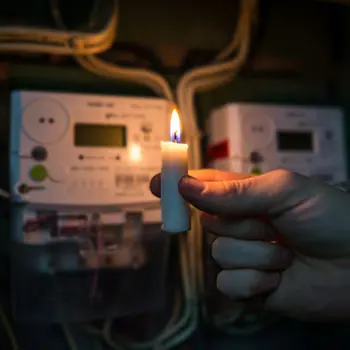
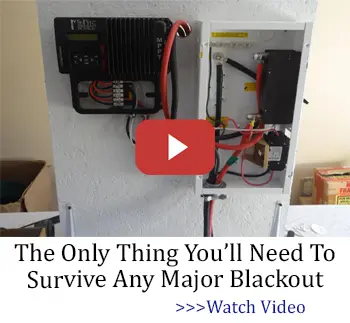

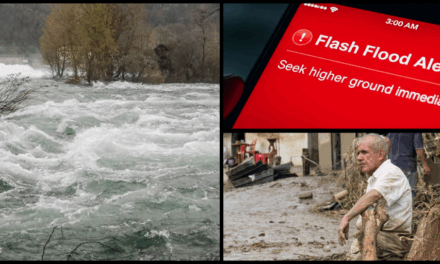
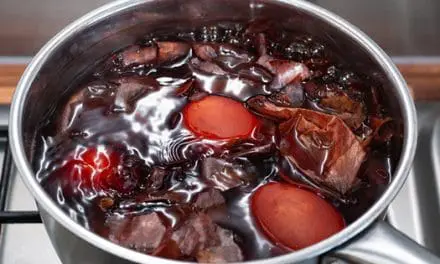
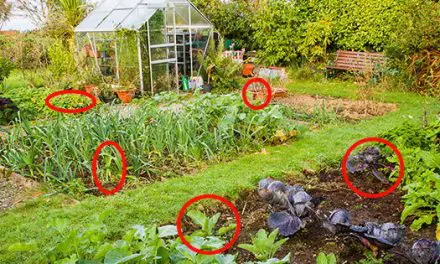
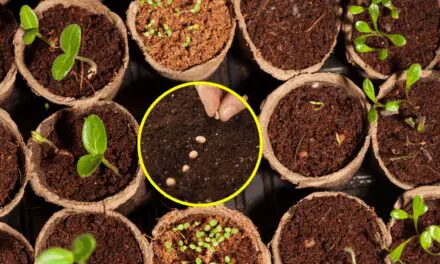









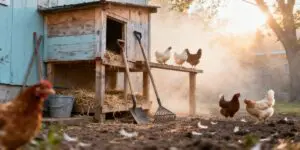
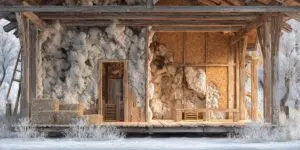
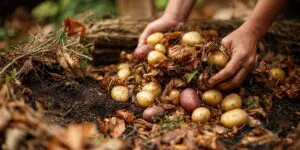
Great article! I full understand the pain!
Further west of Augusta, I. Statesboro, GA, we went without power for ten days. No power meant that the well pump didn’t work. Had to go to a rodeo arena in the next city that turned on their hoses for drinking water. We used pond water to flush and do a little hygiene. Bought a generator to keep the freezers and certain meds cold in the fridge.
I about wore my 18” Poulan chainsaw out cutting limbs and downed trees off the out buildings. Was very glad I had the chainsaw and enough mixed fuel for it!
Need to install a hand pump for the well for power outages in the future.
Built a rocket stove from patio bricks that got ripped up when the tree beside it blew over in the storm. That was a fun little project in the midst of all the hard work trying to clean up the homestead. It worked great!
The horses were kinda left on their own out in the pastures. They were fine. It would have been less safe inside the barn because it’s old and has some very old and worn tin on the roof that took a real beating, with debris falling all over inside the barn.
But there were lots of good lessons learned and plenty of chances to use our prepping supplies and skills!
I certainly feel for the author of this article and the harrowing experience of living through and surviving the aftermath of that storm–but I am a bit surprised by the lack of preparedness. For someone that has written many, many articles on self-sufficiency for this website; Ms. Grant seemed quite unprepared in the areas of alternative power, water, and fuel as well as food storage. Like why had she not considered power outages for her insulin or fuel for their property or even having an alternative grill with charcoal or propane. These things would be a consederation even if they move North. Granted, no power in Georgia at even this time of the year is no picnic to deal with the heat and humidity.
Am I being too judgemental? I live on the Gulf Coast and my first Hurricane was Ivan back in the early 2000s shortly after moving here. We learned quickly what to do in a hurricane and when to bug out. Unfortunately, we could not leave during Katrina. Many more lessons learned in her aftermath.
I apologize for any observations that seem insensitive, but I guess I expected more from the author. But I also know that no two people have the same thoughts and ideas in a situation like that.